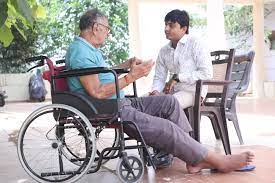Dementia is a condition that affects millions of people worldwide, causing severe cognitive impairment and memory loss. When it comes to advanced dementia care, providing specialized and comprehensive solutions is crucial to ensure the comfort and wellbeing of people with the condition. In this blog post, we will explore various types of advanced dementia care solutions and how they can help individuals with dementia lead a better quality of life.
Specialized Care Homes:
Specialized care homes are an excellent option for individuals with advanced dementia. These homes provide around-the-clock care, supervision, and support for individuals who need high levels of care and assistance. Staff at care homes have specialized training to help individuals with dementia manage everyday tasks, including bathing, grooming, and eating. Additionally, care homes provide various activities and social events that enable people with dementia to engage and have a sense of purpose.
Palliative Care:
Palliative care is another critical component of advanced dementia care. Palliative care aims to provide comfort and relieve symptoms associated with dementia, such as pain, anxiety, and depression. Palliative care also provides emotional and spiritual support to people with dementia and their families, ensuring that they feel understood, informed, and involved in the care they receive. Studies have shown that palliative care can significantly improve quality of life and reduce unneeded hospitalization for people with dementia.
Technology:
Innovative technologies are another tool that is increasingly being used in advanced dementia care. There are various technologies, including memory apps and assistive devices, that can help people with dementia manage their daily tasks, improve their cognitive abilities, and enhance their safety. Technology enables people with dementia to stay connected with friends and family, even when they are unable to leave their homes or are too ill to travel.
Individualized Care Plans:
Advanced dementia care requires an individualized approach that recognizes the unique needs and preferences of each person with dementia. Care plans aim to create personalized strategies that enhance the quality of life for each individual, focusing on things that are important, enjoyable, and meaningful to them. Care plans can include strategies for communication, pain and symptom management, and improving mobility and independence.
Staff Training and Education:
Finally, staff training and education are essential for providing advanced dementia care. Caring for individuals with advanced dementia requires specialized training in recognizing and responding to changes in behavior, communication, and physical ability. Staff must have excellent communication and problem-solving skills and a calm and compassionate approach.
In short:
Providing advanced dementia care entails addressing various aspects of life to ensure the comfort and wellbeing of individuals with dementia. Specialized care homes, palliative care, technology, individualized care plans, and staff training and education are critical components of comprehensive dementia care. By combining these solutions, individuals with dementia can receive the care they need to maintain their dignity, independence, and overall quality of life.



